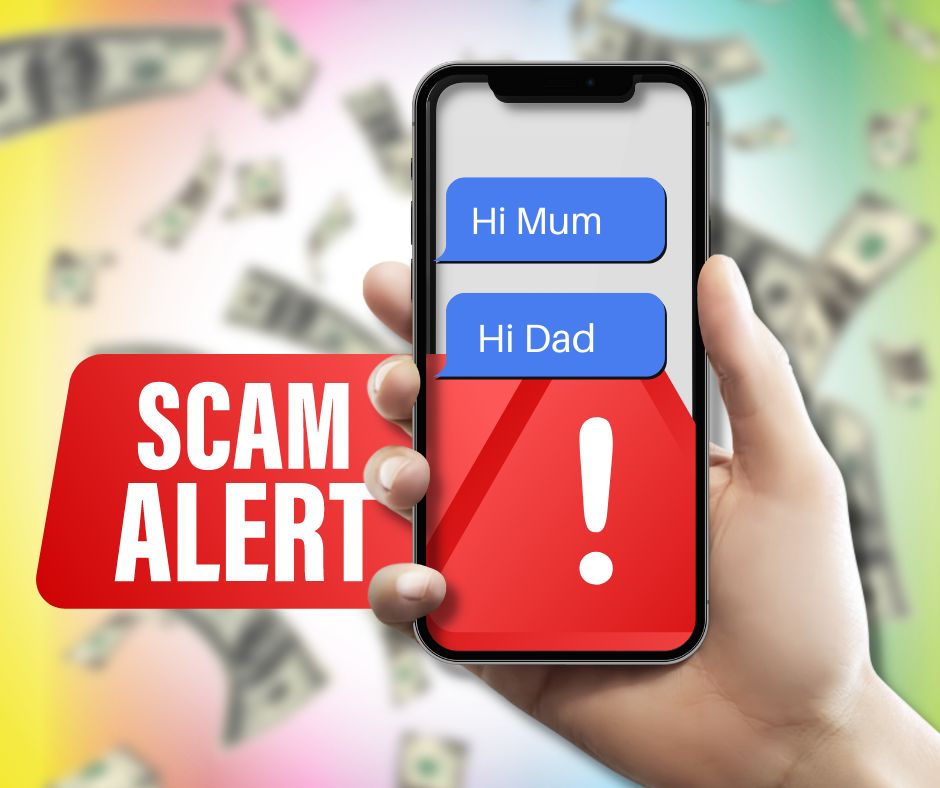Why “Hi Mum” or “Hi Dad” could be a scam…
We’re urging our members and community to be cautious of phone messages from family members or friends claiming they need help, following a significant rise in “Hi Mum” scams in recent months.
More than 1,150 Australians fell victim to the scam in the first seven months of this year, according to ACCC Scamwatch, most of these happened in the last two months.
Known as “Hi Mum” or “family impersonation” scams, victims are contacted – most often through WhatsApp – by a scammer posing as a family member or friend.
The scammer will claim they have lost or damaged their phone and are making contact from a new number. After developing a rapport with their target, the scammer will ask for personal information such as photos for their social media profile or money to help urgently pay a bill, contractor or replace the phone.
These requests continue the ruse of a lost or broken phone with the justification that the funds are needed because they can’t access their online banking temporarily.
The ACCC is urging people who receive suspicious messages from a number they don’t recognise, to independently verify the contact.
They suggest:
Verify Directly
If you’re contacted by someone claiming to be a family member or friend, start by calling the number you have already saved for them in your phone to confirm if it’s still in use, if they pick up the phone, you will know it’s a scam.
Secondary Contact
If you can’t get through to your friend or family member directly, try using another contact method or verifying with someone else who is likely to know such as partner or close friend.
Ask a personal question
If you haven’t been able to contact your family member or friend directly, consider asking a personal question that a scammer couldn’t know the answer to.
Above all, never send money without being absolutely sure who you are sending it to.
Over two-thirds of family impersonation scams have been reported by women over 55 years of age, accounting for more than $1.4 million in losses.
If you have reason to believe you have been scammed please contact us as soon as possible so we can assist.
People who detect a scam, regardless of whether they have lost money, can report scams and learn more about how to get help on the Scamwatch website at scamwatch.gov.au .If you have provided personal information, as most victims have, contact IDCARE immediately.
If you think you have been the victim of an email scam, you should:
Report it to ASIC and the police via cyber.gov.au
Change your passwords and PINs straight away if you suspect your security has been compromised
Contact IDCARE on 1800 595 160 or via idcare.org. IDCARE is a free, Government-funded service that provides support to victims of identity crime
Visit the Scamwatch website for more information on scams.










